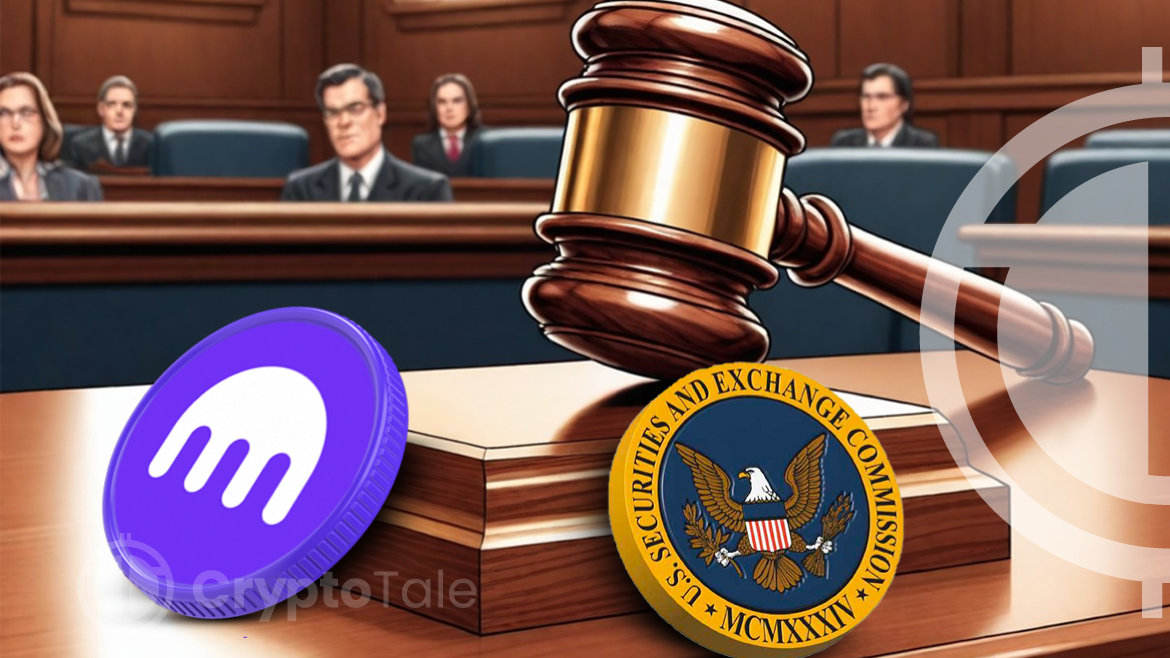
In the rapidly evolving crypto landscape, the recent legal actions taken by the SEC against Kraken to enforce regulatory compliance have ignited a significant development. The case, which was filed in the Northern District of California, has gathered widespread attention as it divulges the intricacies surrounding the regulatory bodies and crypto trading platforms in the new digital realm.
The SEC brought a case against Kraken for operating without obtaining the required regulatory approvals. This case will shed light on the broader implications of regulatory compliance, investor protection, commingling of funds, and the future of cryptocurrency compliance.
Kraken’s Regulatory Non-Compliance
The U.S. Securities and Exchange Commission (SEC) has filed allegations against Kraken for operating as an exchange, broker, dealer, and clearing agency. According to the SEC, Kraken has illegally made hundreds of millions of dollars by facilitating the trading of crypto assets. Kraken’s failure to comply with the regulations by conducting its duties with necessary registrations and oversight required by federal law has exposed investors to potential risks.
The complaint also pointed out how the cryptocurrency exchange functioned as a national securities exchange, offering all the necessary features and services. However, it not only neglected the requirement of registering as a national securities exchange but also failed to secure any form of regulatory exemption as requested by the U.S. securities laws.
Kraken’s actions underscore its disregard for regulatory requirements and the extent to which it is willing to operate without providing a safe market environment for investors. Registering with the necessary departments and going through all the procedures is an important step to safeguard investors’ interests.
The SEC case against Kraken reflects a crucial issue, which is regulatory compliance in the growing digital space. It emphasizes the need for crypto exchanges to follow the established legal frameworks, especially regarding assets that come under “investment contracts.” The current situation highlights the challenges faced by integrating new financial technologies like crypto with the already-existing regulatory landscape.
Commingling of Funds By Kraken
Another aspect of the SEC’s action against Kraken stems from concern regarding its insufficient control mechanisms and bookkeeping practices. Furthermore, the SEC accused Kraken of commingling customer assets with company funds. Commingling funds is typically discouraged for various reasons, including difficulties in accurately tracking asset ownership, misuse of funds, and more. Additionally, it can complicate the return of assets to customers if the company is in financial difficulties or insolvency. For the customers, commingling funds means an increase in the risk of losing their investment or delays in accessing funds.
Kraken’s action of commingling funds not only violated the trust between investors and exchanges but also breached various legal standards set to ensure the security and safety of investments. By accusing Kraken of commingling funds, the SEC stresses the importance of internal control and risk management within the newly rising cryptocurrency trading sector.
The director of the SEC’s Division of Enforcement, Gurbir S. Grewal, said in a statement,
We allege that Kraken made a business decision to reap hundreds of millions of dollars from investors rather than coming into compliance with the securities laws. That decision resulted in a business model rife with conflicts of interest that placed investors’ funds at risk.
Securities And Investor Protection
One of the main highlights of this case includes the classification of crypto assets as securities. The SEC clearly stated that many of the cryptocurrencies traded on the platform fall under the category of securities. These include Cardano (ADA), Dash (DASH), Filecoin (FIL), Solana (SOL), Cosmos (ATOM), Flow (FLOW), OMG Network (OMG), Polygon (MATIC), and more. This complaint comes as no surprise because it signifies the long-standing disagreements surrounding crypto assets and their regulatory implications.
The SEC’s attempt to classify these assets as securities indicates how the assets will be perceived and regulated in the future. The classification will result in strict operational protocols, registration requirements, and other regulatory measures. These actions also serve as a warning to other crypto-trading platforms about the need for regulatory compliance.
According to the SEC, “Kraken is subject to the laws and regulations governing the U.S. securities markets because many of the crypto assets bought and sold through its platform are offered, bought, and sold as investment contracts.”
Furthermore, the SEC’s accusation also focuses on another important aspect of trading, which is investor protection. The SEC asserts that by functioning without the necessary registration, Kraken circumvented all the regulations designed to safeguard the interests of the investors. This form of non-compliance by Kraken could potentially expose investors to high financial risks. The SEC emphasizes that companies like Kraken are neglecting protective measures for investors’ interests and prioritizing their financial gains. This action by the SEC reflects its struggles to ensure all platforms follow the regulations that protect investors and market integrity. The SEC said in a statement,
Kraken’s choice of unlawful profits over investor protection is one we see far too often in this space, and today, we’re both holding Kraken accountable for its misconduct and sending a message to others to come into compliance.
Legal and Financial Ramifications
The SEC is developing various measures to address and rectify Kraken’s regulatory violations. Here are the key components that are included in the final judgment:
- Civil Penalties: The SEC is seeking financial penalties against Kraken, aiming to serve as a deterrent against the crypto exchange Kraken and other such entities.
- Permanent Injunctions: The SEC hopes to obtain court orders that would allow it to permanently ban Kraken from participating in practices that could violate securities laws. This measure aims to prevent future non-compliance and ensure commitment to the legal standards.
- Disgorgement: This involves the process of returning profits that Kraken gained by violating securities laws. This is done to ensure Kraken does not benefit from the ill-gotten gains.
- Prejudgment Interest: To account for the time value of money, the SEC calculates interest based on the period between the gains made and the time of judgment.
State AGs Argument Over SEC Overstepping Bounds:
State attorneys general from states such as Mississippi, Ohio, Texas, Arkansas, and Lowa, along with other individuals, have jointly filed for an amicus brief against the SEC. Asserting that the regulatory body has overstepped its authority by suing Kraken. The AGs argue that by expanding the scope of investment contracts, the SEC is violently abusing its power, which could potentially harm consumers.
According to the filing, if the SEC wins against Kraken in the lawsuit, it might enable the regulatory body to take action against state consumer laws and state regulations related to cryptocurrencies.
The filing states, “States have a strong interest in preventing the potential preemption of consumer protection and other state laws by the SEC’s attempt to regulate crypto assets as securities.”
Conclusion
Overall, the SEC’s action against Kraken highlights its commitment to safeguard investors’ interests by enforcing regulations on the developing digital landscape. By clearly outlining the consequences of non-compliance, the SEC intends to emphasize the importance of adhering to the regulations. This underscores the SEC’s stance regarding non-compliance with regulations and also serves to warn other platforms about the necessity of abiding by the industry standards.














